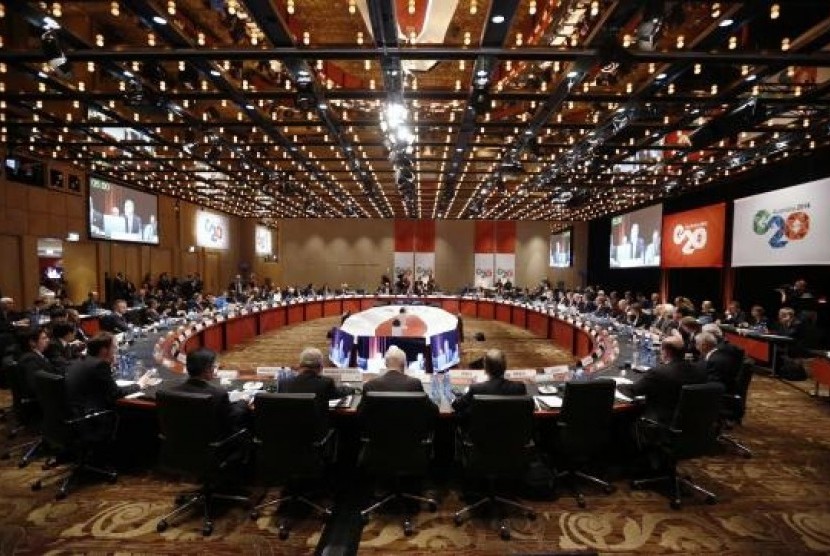REPUBLIKA.CO.ID, SYDNEY - The world's top economies have embraced a goal of generating more than 2 trillion USD in additional output over five years while creating tens of million of new jobs, signaling optimism that the worst of crisis-era austerity was behind them.
The final communique from the two-day meeting of Group 20 finance ministers and central bankers in Sydney said they would take concrete action to increase investment and employment, among other reforms. The group accounts for around 85 percent of the global economy.
"We will develop ambitious but realistic policies with the aim to lift our collective GDP by more than 2 percent above the trajectory implied by current policies over the coming 5 years," the communique read.
Australian Treasurer Joe Hockey, who hosted the meeting, sold the plan as a new day for cooperation in the G-20. "We are putting a number to it for the first time -- putting a real number to what we are trying to achieve," Hockey told a news conference. "We want to add over 2 trillion USD more in economic activity and tens of millions of new jobs."
The deal was also something of a feather in the cap of Hockey, who spearheaded the push for growth in the face of some skepticism, notably from Germany.
"What growth rates can be achieved is a result of a very complicated process," Germany's Finance Minister Wolfgang Schaeuble said after the meeting. "The results of this process cannot be guaranteed by politicians."
Australia is acting as president of the G-20 this year, following Russia in 2013 and ahead of Turkey next year. The growth plan borrows wholesale from an IMF paper prepared for the Sydney meeting, which estimated that structural reforms would raise world economic output by about 0.5 percent per year over the next five years, boosting global output by 2.25 trillion USD. The IMF has forecast global growth of 3.75 percent for this year and 4 percent in 2015.
Agreeing on any goal is a step forward for the group that has failed in the past to agree on fiscal and current account targets. And it was a sea change from recent meetings where the debate was still on where their focus should lie: on growth or budget austerity.


